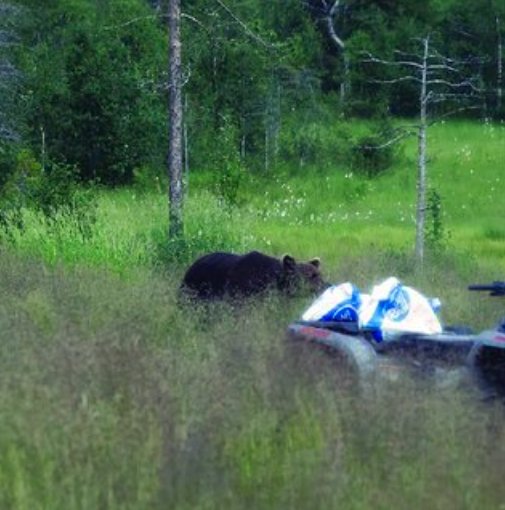Governor Jared Polis and Colorado Parks and Wildlife (CPW) have announced the recipients of the 2024 Human-Bear Conflict Reduction Grants. Nearly $1 million has been allocated to various communities across Colorado to implement innovative solutions aimed at reducing human-bear conflicts. These grants are part of a broader effort to promote coexistence between humans and wildlife, ensuring the safety of both residents and bears. This article explores the details of the grant program, the projects funded, and the expected impact on human-bear interactions.
Innovative Solutions for Reducing Conflicts
The grant program has funded a variety of projects designed to mitigate human-bear conflicts. These initiatives include the installation of bear-proof trash containers, community education programs, and the development of bear-safe zones. By addressing the root causes of conflicts, these projects aim to create safer environments for both humans and bears. The use of bear-proof trash containers, for example, prevents bears from accessing food waste, reducing their attraction to residential areas.
Community education is another critical component of the grant program. Educating residents about bear behavior and proper waste management practices can significantly reduce the likelihood of encounters. Workshops, informational campaigns, and school programs are being implemented to raise awareness and promote coexistence. These efforts are particularly important in areas with high bear populations, where human-bear interactions are more frequent.

The development of bear-safe zones involves creating designated areas where bears can roam without coming into contact with humans. These zones are equipped with natural food sources and water, encouraging bears to stay within these safe boundaries. By providing bears with their own space, the risk of conflicts is minimized, benefiting both wildlife and local communities.
Community Involvement and Support
The success of the grant program relies heavily on community involvement and support. Local residents, businesses, and organizations have played a crucial role in the development and implementation of the funded projects. Their active participation ensures that the initiatives are tailored to the specific needs and challenges of each community. This collaborative approach fosters a sense of ownership and responsibility, increasing the likelihood of long-term success.
Businesses have also contributed to the efforts by adopting bear-safe practices and supporting educational campaigns. Restaurants, for example, are implementing measures to secure their waste and prevent bears from scavenging. Local stores are stocking bear-proof containers and other safety equipment, making it easier for residents to adopt these practices. The involvement of the business community not only enhances the effectiveness of the projects but also demonstrates a commitment to wildlife conservation.
Volunteers have been instrumental in the success of the grant program. From assisting with the installation of bear-proof containers to participating in educational workshops, their contributions have been invaluable. Volunteer efforts help to extend the reach of the projects and ensure that as many residents as possible are engaged and informed. The sense of community and shared purpose that these efforts foster is a key factor in the program’s success.
Long-Term Impact and Future Plans
The long-term impact of the Human-Bear Conflict Reduction Grants is expected to be significant. By addressing the root causes of conflicts and promoting coexistence, these projects aim to create lasting change. The reduction in human-bear interactions will not only enhance public safety but also contribute to the conservation of bear populations. Bears that do not associate humans with food are less likely to become problematic and face relocation or euthanasia.
Looking ahead, CPW and Governor Polis are committed to continuing and expanding the grant program. Future plans include increasing funding, supporting more innovative projects, and enhancing community engagement. The success of the current initiatives provides a strong foundation for future efforts, and the lessons learned will inform the development of new strategies. The goal is to create a sustainable model for human-wildlife coexistence that can be replicated in other regions facing similar challenges.
In conclusion, the 2024 Human-Bear Conflict Reduction Grants represent a significant step forward in promoting coexistence between humans and bears in Colorado. The innovative projects funded by these grants address the root causes of conflicts and engage communities in meaningful ways. With continued support and collaboration, the long-term impact of these efforts will be a safer and more harmonious environment for both residents and wildlife.













